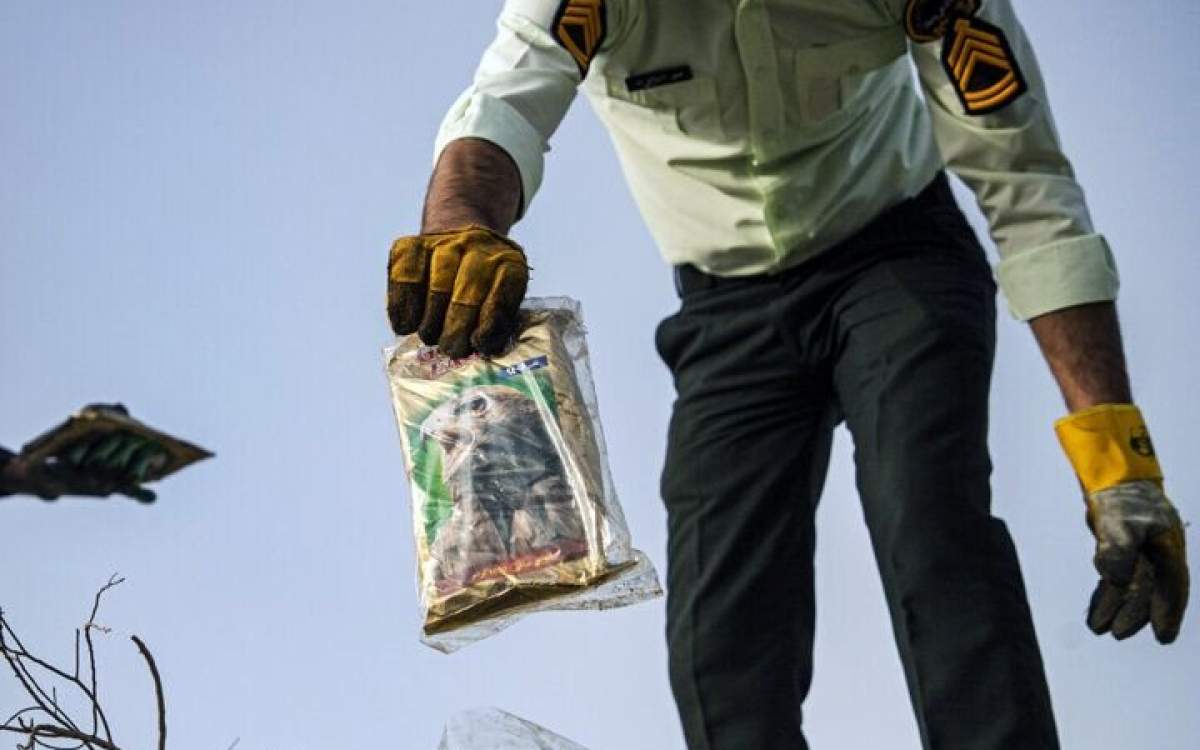The Iran Project
: Iran has been the only country on the front line of the war against narcotics for over 45 years despite oppressive sanctions of the U.S., the economic problems ahead, and the limited contribution of other countries.
Sunday 9 June 2024 - 20:02
Story Code : 422949
Source : Tehran Times
Iran at forefront of war on drugs for over four decades
Their sacrifice has not only safeguarded the borders of the country but also the countries that claim democracy and human rights.
According to the United Nations Office on Drug and Crime (UNODC), about 35-40 percent of the drugs produced in Afghanistan are smuggled through Iran to enter Europe and west of Asia.
However, with the bravery and perseverance of anti-narcotics police, more than 75 percent of the drugs are discovered and destroyed.
If it weren't for necessary actions taken by Iran, this amount of illicit drugs would have caused disasters in European and American countries.
Logistical, equipment, and financial sanctions under the pretext of political sanctions, in practice, have left Iran alone in dealing with the world's largest drug trafficking axis.
According to official reports, Western countries have so far withheld even the slightest aid to Iran.
"The increase in sanctions has also cast a shadow on the fight against narcotics, but we warn them that sanctions on narcotics are the most unintelligent sanctions since it will lead to a decrease in world security,” IRNA quoted Iran's Police Chief, Brigadier General Ahmad Reza Radan as saying.
Relying on the expertise of Iranian elites and researchers, as well as using up-to-date equipment and modern inventions of knowledge-based companies, the anti-narcotics police has been able to achieve good results in drug discoveries and arresting drug dealers.
Considering that drug-related crimes are considered transnational organized crimes, no single country can effectively tackle the fight against drugs alone.
On April 17, Alireza Kazemi, an official with anti-narcotics headquarters, said, “Iran is now self-sufficient in preventing addiction, treating addicts, and combating narcotics.”
Despite unfair sanctions, knowledge-based companies have achieved significant scientific progress in dealing with the harms of addiction and drugs which has made the country independent from foreign aid.
Domestically-made products that are used to treat drug addiction can be exported to other countries, even advanced countries, he added.
The affordability and the minimal side effects of these products have made them competitive compared to foreign counterparts. In some cases, they have proved to be even much more effective.
Effective implementation of anti-narcotics programs
In March, the secretary general of the anti-narcotics headquarters stressed the need for effective implementation of anti-narcotics programs in the region free from political considerations.
“One of the most important challenges of the present era is the narcotic drugs, industrial substances and new psychedelics and the sufferings that I would like to refer to as the quiet war against humanity,” IRIB quoted Eskandar Momeni as saying.
He made the remarks in the 67th UN Commission on Narcotic Drugs, urging all countries to be committed to the sustainable and effective implementation of international drug control conventions.
“In the past five years, adopting a balanced strategy in the fight against drugs, the Islamic Republic of Iran has taken effective measures to promote security and public health in alignment with the implementation of the 2019 Ministerial Declaration, international treaties, and conventions,” Momeni added.
He referred to the compilation and implementation of the comprehensive document on treatment and harm reduction; the expansion of treatment centers both quantitatively and qualitatively, the maximum use of the private sector and non-governmental organizations (7,200 centers), employing diverse treatment methods including pharmaceuticals and psychological and social interventions, ensuring access to medicinal substances for medical and scientific purposes, boosting harm reduction programs by providing various services to people at risk and managing the spread of AIDS and Hepatitis C as other measure taken by the country.
Momeni further underscored the need to stop the cruel and unilateral sanctions and foster cooperation between the United Nations, international communities, and Iran in various aspects to strengthen the global fight against drugs.
In June 2023, the UNODC representative in Tehran, Alexander Fedulov said Iran should provide other countries of the world with its experiences in dealing with narcotics.
“The successful experiences of Iran’s anti-narcotics police in the field of combating drug transit should be made available to all countries in the region and the world in different ways,” he added.
The international community, while becoming more familiar with the countermeasures of the Islamic Republic of Iran, should provide more support for the fight against narcotics in this country, the UNODC official stressed.
Reporter : Editorial of The Iran Project
# Tags











